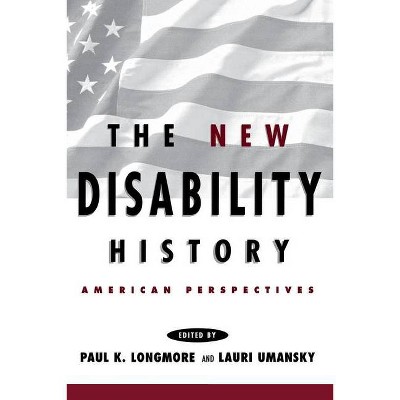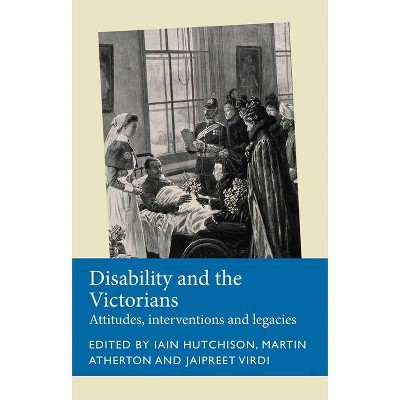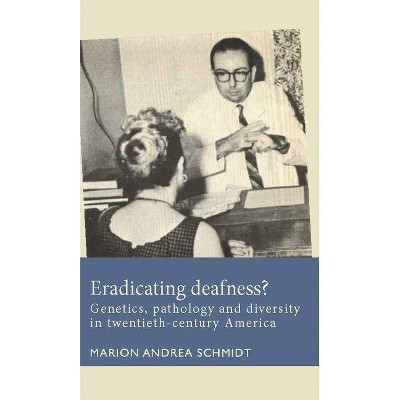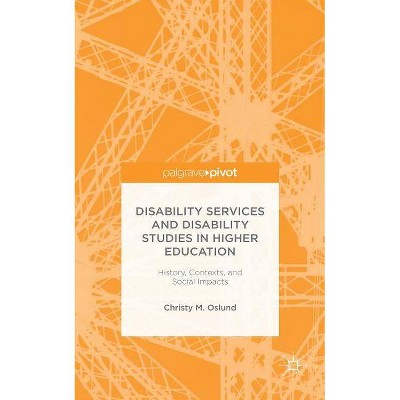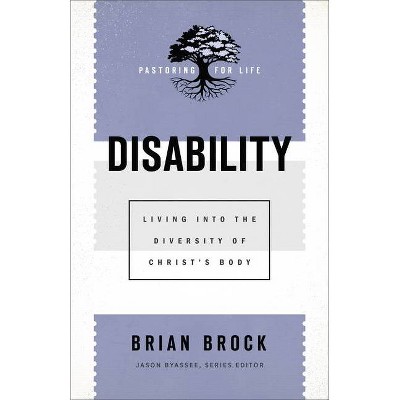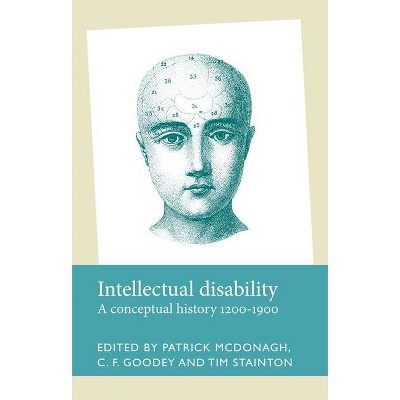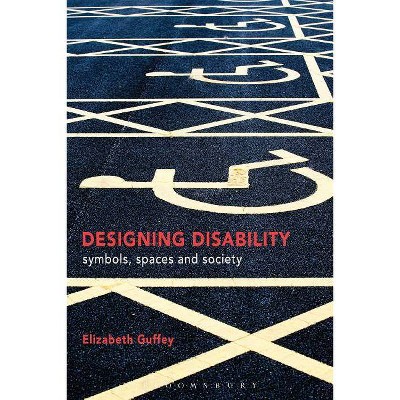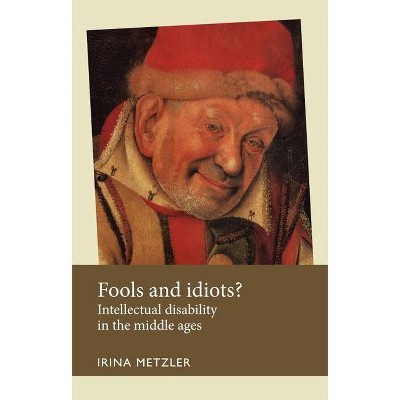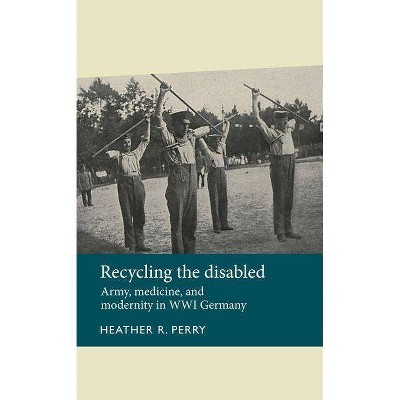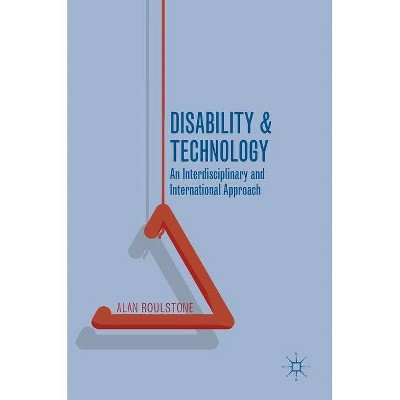Disability in Industrial Britain - (Disability History) by Kirsti Bohata & Alexandra Jones & Mike Mantin & Steven Thompson (Hardcover)
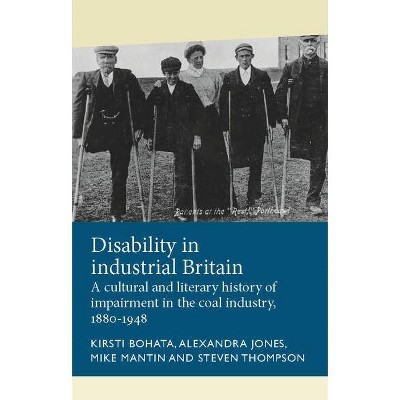
Similar Products
Products of same category from the store
AllProduct info
<p/><br></br><p><b> About the Book </b></p></br></br>This book examines disability and disabled people in British coalmining, an industry with high levels of injury and disease and where, as one outsider noted, streets 'thronged with the maimed and mutilated'.<p/><br></br><p><b> Book Synopsis </b></p></br></br>An electronic version of this book is also available under a Creative Commons (CC-BY-NC-ND) license, thanks to the support of the Wellcome Trust. Coalmining was a notoriously dangerous industry and many of its workers experienced injury and disease. However, the experiences of the many disabled people within Britain's most dangerous industry have gone largely unrecognised by historians. This book looks at British coal through the lens of disability, using an interdisciplinary approach to examine the lives of disabled miners and their families. A diverse range of sources are used to examine the economic, social, political and cultural impact of disability in the coal industry, looking beyond formal coal company and union records to include autobiographies, novels and existing oral testimony. It argues that, far from being excluded entirely from British industry, disability and disabled people were central to its development. The book will appeal to students and academics interested in disability history, disability studies, social and cultural history and representations of disability in literature.<p/><br></br><p><b> From the Back Cover </b></p></br></br>Coalmining was a notoriously dangerous industry and many of its workers experienced injury and disease. However, the experiences of the many disabled people within Britain's most dangerous industry have gone largely unrecognised by historians. This book looks at the British coal industry through the lens of disability, using an interdisciplinary approach to examine the lives of disabled miners and their families. The book covers an era of British coalmining in which it peaked as one of Britain's most productive and lucrative industries, through strikes and wartime, and into an era of decline. During this time, the legislative provision for disabled people changed hugely, most notably with the first programme of state compensation for workplace injury. Yet disabled people remained a constant presence in the industry; many miners continued their jobs or took up 'light work', and mining families regularly adapted their social relations for their disabled members. The burgeoning coalfields literature used images of disability consistently, their disabled characters representing the human toll of the industry. A diverse range of sources are used to examine the economic, social, political and cultural impact of disability in the coal industry, looking beyond formal coal company and union records to include autobiographies, novels and existing oral testimony. It argues that, far from being excluded entirely from British industry, disability and disabled people were central to its development. The book will appeal to students and academics interested in disability history, disability studies, social and cultural history and representations of disability in literature.<p/><br></br><p><b> Review Quotes </b></p></br></br><br>'Rich sources and powerful stories animate this volume. [...] <i>Disability in Industrial Britain</i> is a major contribution to our understanding of the British coalfield when it was at the heart of a leading industrial economy. Bohata et al.'s emphasis on disability as a centrally constitutive part of coalfield life is highly original and forms a logical extension to the evolution of the historiography towards community, embodiment and cultural production.' <i>Reviews in History '</i>This volume is well written and has a clear structure which drives efficiently and engagingly to the authors' conclusions.' <i>Labour History Review</i> 'The authors tell not one story but many stories, highlighting distinct regional and national trajectories informed by the divergent pace of industrialization across the United Kingdom, variations in geology and geography, and distinctive religious, political, and industrial cultures. They succeed in bringing to visibility fragments of individual stories that remind us of both the difficulties and rewards of retrieving the voices of disabled people.' <i>H-Disability</i>, Vicky Long<br><p/><br></br><p><b> About the Author </b></p></br></br>Steven Thompson is a Senior Lecturer in the Department of History and Welsh History at Aberystwyth University <p/>Mike Mantin was Research Fellow for the Disability and Industrial Society project <p/>Kirsti Bohata is Professor of English and Director of CREW, the Centre for Research into the English Literature and <br>Language of Wales at Swansea University <p/>Alexandra Jones was on a Full PhD Studentship for the Disability and Industrial Society project
Price History
Cheapest price in the interval: 36.95 on November 8, 2021
Most expensive price in the interval: 36.95 on December 22, 2021
Price Archive shows prices from various stores, lets you see history and find the cheapest. There is no actual sale on the website. For all support, inquiry and suggestion messagescommunication@pricearchive.us
